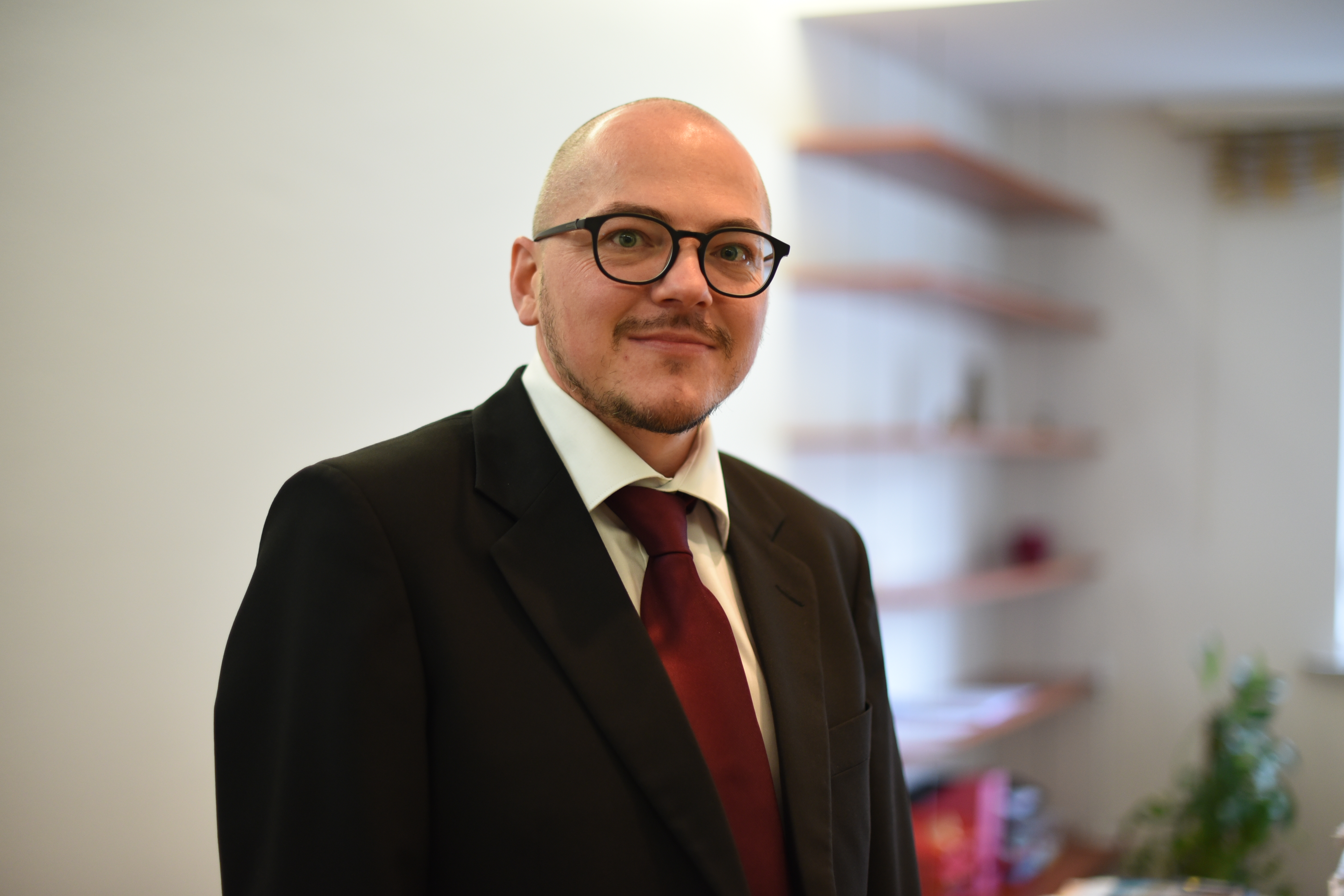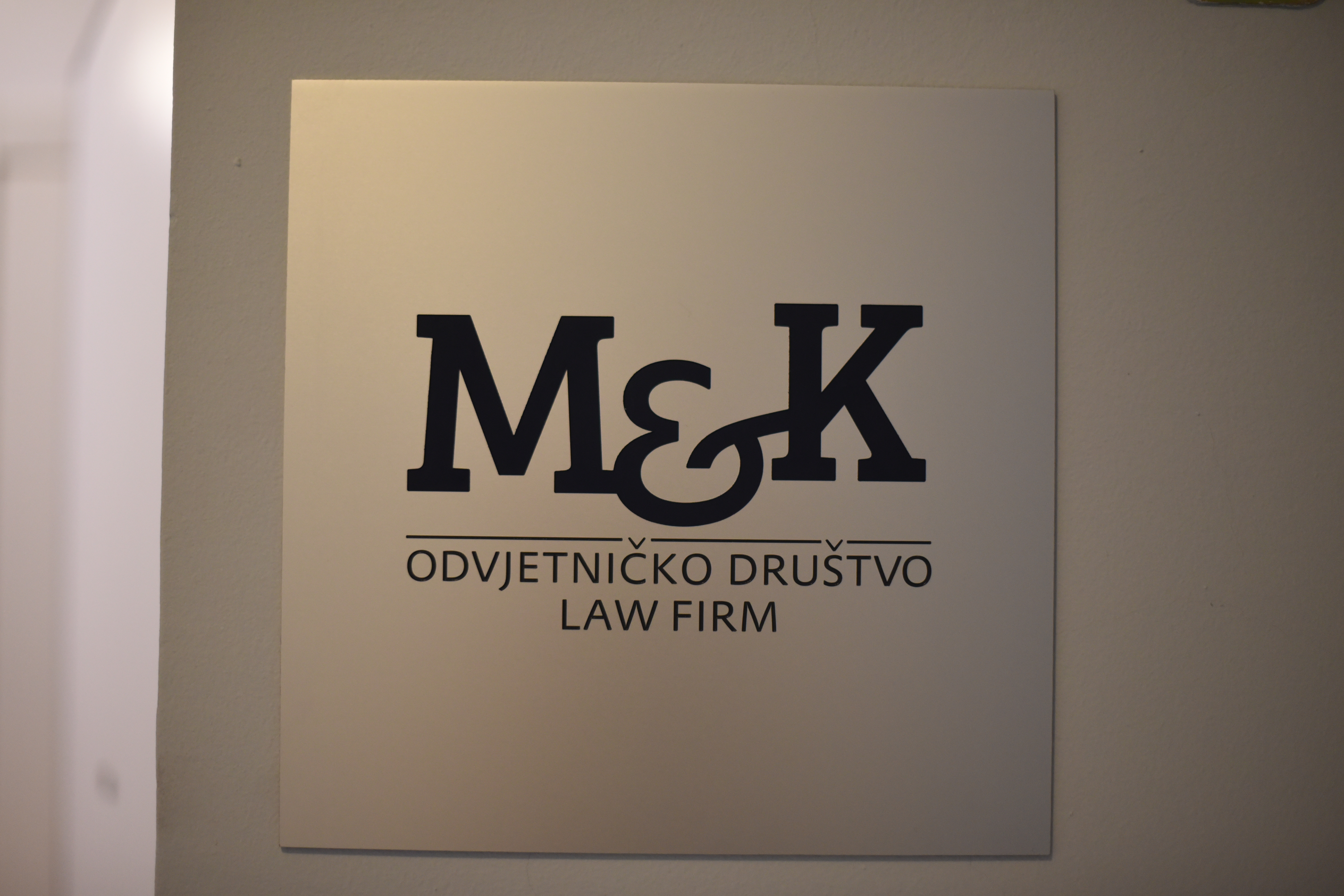Mateša&Kapitan Law Firm has been successfully providing legal assistance to its clients since 2010 in accordance with positive regulations of the Republic of Croatia and acts of the Croatian Bar Association
In today’s age of fast and accessible communication, daily conclusion of various contracts and jobs among people who are often completely dislocated, it is much more important to resolve their legal issues so that they do not take away their time, create negative energy and divert focus from business, which is the basis of every entrepreneur, Zlatko Mateša, Partner Attorney-at-Law at Mateša&Kapitan Law Firm, says for Diplomacy&Commerce. He explains that with today’s fast development of the economy and technologies, the law and legal practice, being a conservative profession after all, are changing and adapting increasingly faster.

- Your Law Firm was established in 2010 and you have been successfully providing legal assistance to your clients in accordance with positive regulations of the Republic of Croatia and acts of the Croatian Bar Association. What services can clients turn to you for and which activities are your specialties?
Our Law Firm works predominantly with economic entities, where we provide all the legal assistance they need in their operations. This most often includes commercial law, labour law, land registry law, collection of receivables, protection of intellectual property rights and copyright, etc.
- What is it that makes Mateša&Kapitan Law Firm different from others?
First of all, I think it would be pretentious to think that we are particularly different or better at something that our other colleagues lawyers, who do their job professionally and with quality.
What I can do is talk about the part that makes us Mateša & Kapitan Law Firm, and I believe that it’s primarily our focus on resolving legal challenges of our parties. Namely, we try to offer legal services in a way to truly resolve the legal issues of our parties, to eliminate or shorten the duration of legal proceedings as much as possible, to communicate with the opposing counsel and try and find an optimal solution to end a dispute – of course, always taking into consideration the interests of our party.
I believe that In today’s age of fast and accessible communication, daily conclusion of various contracts and jobs among people who are often completely dislocated, it is much more important to resolve their legal issues so that they do not take away their time, create negative energy and divert focus from business, which is the basis of every entrepreneur. It is my opinion that lengthy court proceedings seldom bring any great satisfaction, even in case of ultimate success, since time is what ultimately erases the importance and often the emotions that led to a dispute. For example, 10 years after the beginning of process, the parties themselves are rarely overly interested in the actual result of the court proceedings, but if they are still in business – then they are just waiting for the end of such a procedure, which is usually difficult for them.
In our operations, we strongly appreciate the basic values: ethics, morality in business and decency in dealing with our clients and other stakeholders in the process. I believe that these basic values should be emphasized and used in performing this work, regardless of the fact that the most common perception of a good lawyer is a load and agressive appearance, but I assure you that it is often completely unnecessary and a failed approach that usually harms the interests of the client.

- How would you describe the current state of advocacy and the legal profession in Croatia, and what is the direction it should take in the future? What are the basic differences in business today compared to when you started?
I can say that the legal profession is changing almost every day. Since we as a profession are, after all, tied to the economy, and we represent some form of its service, we ourselves are thus susceptible to changes that are taking place in the economic transactions, which are significant. Today, the legal profession is increasingly becoming a consulting activity and I think that we will continue in this direction in the future. Our clients ask us to be available to them on a daily basis and to assist them in making their business decisions. We are present almost in everyday business of our clients, since we ourselves must be familiar with at least the general way their business operations are conducted, in order to be able to provide them with timely and good legal advice. I think, therefore, that the line between business and law is getting thinner, and that it is almost impossible to deal exclusively with law, like before, without a deeper understanding of business and business relations, but also to do business without neglecting its legal order, especially taking into account the growing number of legal regulation of each individual business.
With today’s fast development of the economy and technologies, the law and legal practice, being a conservative profession after all, are changing and adapting increasingly faster. Today, at the level of legal profession, there is talk of personal data protection, intellectual property rights, web commerce, consumer protection, etc. and these legal segments were previously on the margins of the legal profession. At the level of the legal profession, E-communication with courts is being introduced, hearings are held via web platforms, we take part in proceedings before European courts with the application of EU law, foreign law offices come and operate in the Republic of Croatia. So all of the above are huge and daily changes in the legal profession, and it is certainly a challenge for all of us to permanently educate ourselves and be competent in the large amount of legislation that is constantly being adopted and changed.
I am of the opinion that the legal profession will continue its development in the direction of advisory services in the future with the aim of actually facilitating and preventing the accumulation of classic litigation among clients. Interdisciplinarity in the provision of legal aid, alternative dispute resolution and international cooperation will become more and more pronounced.
- Your company is the member of a leading European network of independent law firms – EUROJURIS, which is seated in Belgium. How significant is this for you and what are the advantages of this membership?
We are very happy that, as a member of Eurojuris, we can take an active part in educational events and more informal gatherings with colleagues from all over the world. As an organization, Eurojuris is very active and we often have events or specialized work groups from a particular branch of law, which allows us to exchange experiences with other colleagues, and it gives us insight into the legal profession at a wider European level.
The current situation with the pandemic has, of course, limited the possibilities of holding meetings, but I hope that the same will soon return to normal.
An additional benefit from this membership is definitely the possibility to provide our parties with quality legal aid outside Croatia as well, in cooperation with verified law firms from Europe and the world.
- Since the beginning of the COVID 19 pandemic, we all adapted and in many cases transferred to online platforms. You give your clients the possibility for cooperation, making agreements, doing business via online platforms? Which ones do you use and how?
Yes, sadly the current circumstances are such that the possibility of direct social interaction has been reduced practically to a minimum. What’s fortunate in this entire situation is that technology provided us with ICT solutions that enable us to use direct communication at a distance, use and transfer of documentation and in fact to continue our business operations, etc.
Since these solutions exist, we enable our clients to contact us and use our services without coming to our office in person. In practice, this means that we communicate with a client directly through one of the online platforms, we receive the necessary information and documents, and provide the requested service without physical contact with the party. All the necessary technologies for this kind of “online” legal services have been present in the past as well, but we now provided a new product to our clients by combining these technologies, which saves them time, money and doesn’t expose them to the currently present health risk.
- How much have online business operations affected the changes in business? For example, how do you conduct online mediations and the like?
Online business and the development of communication technologies in general has of course accelerated business processes, so today, mainly when a service is not received the same or the next day, clients become impatient, although some legal matters undoubtedly take time if you want to do quality work. But it’s also understandable that business operations can’t wait so all of this together has accelerated the processes that used to be more time consuming. It is important here to maintain this ratio of speed and quality of service, as otherwise the consequences may be undesirable.
As for mediation, i.e. conciliation, this alternative manner of resolving disputes has many advantages, so even though it has not yet been fully in use in our country, I believe that it will be more represented in the future. The promotion and encouragement of the use of this type of dispute resolution at the Croatian level is particularly successfully performed by the Croatian Mediation Association, and this form of dispute resolution has been adopted by some formal organizations as well (e.g. the Croatian Insurance Bureau).
Mediation focuses on the primary resolution of a legal dispute between the parties by bringing the opposing parties closer through communication with the aim that they find a way to resolve the dispute themselves with the professional assistance and guidance of the mediator. I can say from my experience that in some disputes, it is precisely the lack of communication that leads to lengthy court proceedings which is why I believe that mediation can be a good alternative to courts in terms of speed, a different approach and less formality in resolving disputes. Lawyers should not be afraid of losing their significance in this type of procedure, but rather use their behaviour and participation in mediation to help and resolve their disputes, often faster and “more painless” than in court proceedings. Since lawyers actually often act as mediators in their everyday work, knowingly or unknowingly, their adaptation to this kind of procedure is practically natural.
- What are you personally guided by when it comes to work and what do you strive for?
Personally, I am satisfied with the cooperation with colleagues from the law firm and the fact that we have created a quality team and work environment in which everyone can participate with their ideas and work. I think today it is more important than ever to give people the opportunity to prove themselves, give them the confidence and have flexibility and understanding for each individual. I am also professionally satisfied that we have managed to build long-term relationships with our clients, which over time often go beyond the business relationship itself. However, it is always important to remember that we are a law firm and that the services we provide to our clients must be of high quality.
In perspective, I hope that the COVID 19 pandemic will tone down and that we will all be able to turn to new business challenges and personal pleasures, with a few hugs here and there.